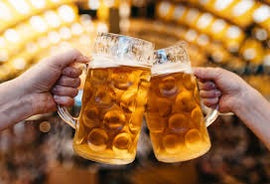A DARKER SHADE OF PINK
While the wines this month share a few commonalities—both are from the southern half of France and are farmed organically—the striking feature we will focus on is color. While rosé can be macerated, which is one of the earliest steps in winemaking, where the grapes are crushed and the juice is left to sit on the skins and solids to extract color, tannins, and flavor compounds, it is typically done for as little as two hours. The juice is then quickly removed from the skins to avoid excessive color or pressed without maceration at all to create lighter-colored wines. This month, we will be examining the other side of rosé: wines with deeper color and different techniques, such as extended maceration and the saignée method.
Rasteau is a tiny village in the Southern Rhône that, like much of this part of France, traces its winemaking history back to the Romans, with evidence of vineyards as early as 30 BC. The first documented evidence of winemaking dates to the 11th century. Under the supervision of the church and the bishops of Vaison-la-Romaine, the region's winemaking developed further from the end of the 13th century onward. Historically known for its Vin Doux Naturels, fortified wines made from Grenache, Rasteau has, in recent decades, become known for its dry red wines.
Irouléguy is nestled in the heart of French Basque Country beneath the Pyrenees mountains and boasts 2,000 years of winemaking history. During the Middle Ages, monks made wine for pilgrims traveling to the Cathedral of Santiago de Compostela in Galicia. This tiny appellation is ideal for growing grapes, with its sunny maritime influence tempered by the mountain range, providing warm, dry summers. While the local Tannat and Cabernet Franc produce big, tannic reds, the rosé is similar to those of nearby Navarra, with its fruity flavors and perfumed nose.
Think Pink,
Justin Malesheetz
PlumpJack Fillmore Wine Buyer
|
2024 Coteaux de Travers ZouZou Cotes du Rhone Rosé |
|
|
Region/Country of Origin: Rasteau, FR |
About the Winery: Founded in 1920 in the commune of Rasteau in the heart of the Cotes du Rhone, Coteaux de Travers initially sold their grapes and didn’t bottle their own wine until 1976. In 1984, Robert took over the estate from his father and, with a focus on more sustainable farming, began elevating the quality of the wines. Since 2010, the estate has been certified organic and farmed biodynamically. Roberts' children, Marine and Paul, began working on the estate in 2016. With her doctorate in organic chemistry, Marine focuses primarily on winemaking while her brother Paul, with a degree in industrial engineering and two years of experience working in Australia, focuses primarily on work in the vineyard. About the Winemaking: A blend of Grenache, Cinsault, and Clairette that utilizes the saignée method in which a portion of fermenting wine destined to be made into red wine is bled off after a shorter period and finishes its fermentation separately, creating a darker, bolder rose. The wine is fermented at low temperatures and aged for three months in stainless steel vats. Tasting Notes: A pale rose color in the glass with aromas of fresh raspberry, red cherry, strawberry, and a fresh herbaceous character. On the palate, it shows bright acidity matched with bright red berry flavors and a dry finish. |
|
Winemaker: Marine Charavin |
|
|
Price per bottle / Price per case: $15.99 btl/ $172.69 cs
|
|
|
Suggested Food Pairing: Great as an aperitif or with hard cheeses, grilled oysters, chicken in cream sauce with mushrooms. |
|
|
2024 Domaine Ilarria Irouléguy Rosé |
|
|
Region/Country of Origin: Irouléguy AOC, FR |
About the Winery: Domaine Ilarria is a multi-generational estate located firmly in French Basque Country, and until 1990 was one of only two independent producers in a region largely run by the local cooperative. Currently run by Peio Espil, who took over the domain in 1990, the vineyards have been farmed without the use of synthetic chemical sprays and have been certified organic since 2008, with a focus on biodiversity in the vineyards and overall health of the soil being his number one concern. About the Winemaking: A blend of 60% Tannat and 40% Cabernet Franc from certified organic vineyards that are hand harvested and destemmed before undergoing a longer maceration for rose (15-18 hours) to extract color and aromatic compounds. The wine is then pressed and undergoes primary and malolactic fermentation with ambient yeast and aged on the lees in stainless steel vats. Tasting Notes: Pale crimson with a nose of mineral earthiness and floral notes; dried rose, blood orange, cranberry, pomegranate, and dried citrus peel. Dry and tart on the palate, with vivid acidity and fresh cranberry and citrus flavors with a long, almost flinty finish. |
|
Winemaker: Peio Espil |
|
|
Price per bottle / Price per case: $27.99 btl/ $302.29 cs |
|
|
Suggested Food Pairing: Carpaccio, roasted root vegetables, grilled chicken. |
|





